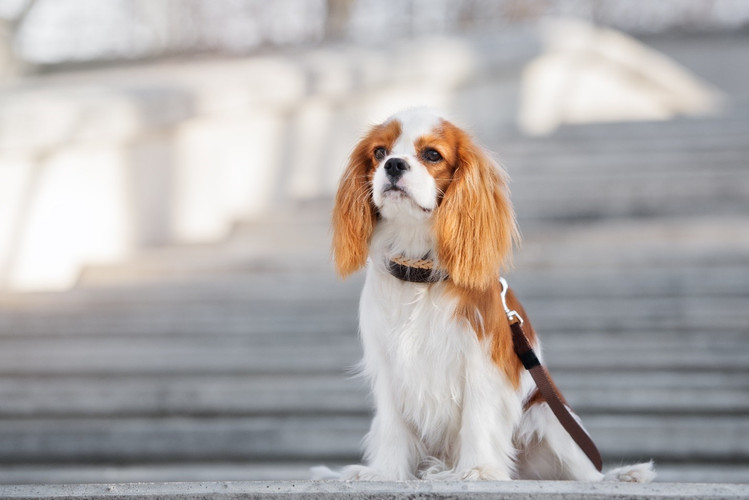Owning a Cavalier King Charles Spaniel
If you're searching for a family-friendly dog that quickly picks up on new training, the Cavalier King Charles Spaniel loves to engage with people - including children - and has a curious, although at times excitable, temperament.
As you think about owning this dog, keep the following in mind:
Basic Characteristics
The Cavalier King Charles Spaniel is a smaller spaniel breed originating in the United Kingdom. Its presence has grown in the U.S. over the past 20 years likely in response to its affectionate nature and child-friendly temperament. These characteristics also mean it meshes well with any other pets you currently own.
Visually, you can often spot a Cavalier King Charles Spaniel by its coat - which is typically white and chestnut or brown. Its size classifies it as a toy breed, and while it enjoys sitting in its owner's lap, it stays true to its bird-hunting origins. As a result, Cavalier King Charles Spaniels tend to be more active and require greater engagement than other similarly small dogs. Routine playing and running in the backyard help this breed burn off its energy.

Cavalier King Charles Spaniel Temperament
The temperament of a Cavalier King Charles Spaniel varies from focused, attentive and intelligent to sometimes hyperactive and easily distracted:
- In general, Cavalier King Charles Spaniels are easy to train due to their responsiveness to humans and tend to learn through drills, repetition and positive reinforcement. These pets quickly pick up on obedience cues and have no trouble learning to socialize.
- The level of engagement needed, however, means that these dogs can become clingy, needy or depressed if you're not home for lengthy periods.
- Cavalier King Charles Spaniels typically love human contact, often behaving in an affectionate and warm nature. This is the case with adults, as well as children.
- While most won't describe these dogs as aggressive, it has been known to nip children who attempt to pull its ears or tail.
- Due to their nature, these dogs may chase after a bird or squirrel outside and should be kept on a leash.
- Cavalier King Charles Spaniels are also described as "curious" and almost cat-like in nature. However, this also means that you may need to proof your home or relegate your pet to select areas.
- These dogs are also friendly toward other dogs. While this means it makes friends wherever it goes, these dogs often don't read or acknowledge aggression.
Health Issues
Cavalier King Charles Spaniels are prone to a number of health concerns, including:
- Food sensitivities leading to allergies, gastritis or pancreatitis.
- Easily gaining weight, especially if it is not regularly active.
- Joint issues.
- Heart disease and heart failure.
- Cataracts, retinal issues and other eye concerns.
- Patella luxation.
- Hip dysplasia.
- Ear infections and being hard of hearing.
- Syringomyelia, a neurological concern.
Despite this list, Cavalier King Charles Spaniels can live for close to a decade.

Other Concerns
Be prepared to contend with:
- Food issues: Along with a higher likelihood of food sensitivities, Cavalier King Charles Spaniels tend to be picky eaters who sometimes lose interest in their food.
- Getting started: Cavalier King Charles Spaniels can sometimes become overly stimulated or excited.
- Grooming: A slightly longer coat requires more brushing, as well as shampooing with a product like Eye Envy® Moisturizing Pet Shampoo to preserve its lustrous quality. Due to infection risks, you're advised to check its ears at least once a month. Also get in the habit of clipping its nails monthly.
- Activity level: Despite giving the impression of a lap dog, Cavalier King Charles Spaniels started as a sporting breed and today require a moderate amount of activity to stay engaged, avoid becoming bored and keep its weight under control.
- Tear stains: Cavalier King Charles Spaniels tend to have shallow eye sockets, which increases the likelihood of tear drainage problems and tear staining. Help clean away staining without irritating your pet's eyes with Eye Envy® Tear Stain Facial Cleanser, Tear Stain Remover Wipes and Tear Stain Remover Kits.

